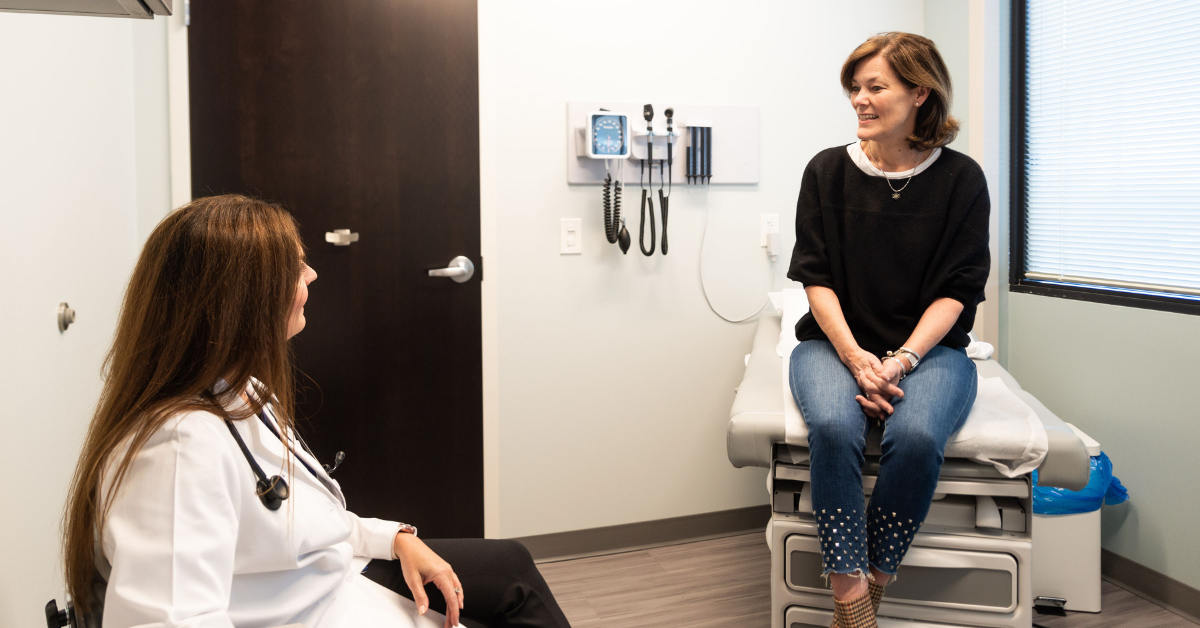
Whether at work, at home, or in the role of caregiver, women have unique needs. Healthcare is one of the most important, a lifelong journey that changes as we age or find ourselves in new life stages. It’s important that each woman find options and care partners that meet not only her needs but her preferences.
At Tryon Medical Partners, where 54 percent of physician-owners are women, we deeply understand women’s health. We often field questions from women about gynecological needs and how they best fit with holistic health.
As women reach age 65, they are often curious when they can stop seeing a gynecologist completely, and even younger women often wonder if seeing a specialist is their best course of action. No matter where you are in your health journey, you have options.
Pelvic exam or no pelvic exam? That is the question.
Often, when women ask if they truly need to see a gynecologist, the question that’s really on their minds is, “Do I have to have a pelvic exam?” Putting your feet in the exam table foot rests is likely something you’d prefer to do as infrequently as possible, while still keeping your best health top of mind.
A pelvic exam is performed to examine reproductive organs including the uterus and ovaries and typically includes a cervical cancer screening Pap test, or Pap smear. Cervical cells are collected during the Pap test and then analyzed for cervical cancer, one of the most common causes of death in American women. While Pap screenings were at one time something most women did annually, this is no longer the standard recommendation. Additionally, pelvic exam are not typically needed on an annual basis.
As research has shown that cervical cancer takes years to develop, recommendations for screening frequency have evolved. Screenings should begin at age 21 and be repeated every three to five years until age 65, based on previous results.
Your Pap screening may not be annual but care should still be.
For women over age 65 who may no longer need Pap smears and for women who only need them every few years, this does not mean an annual exam should come off your “to-do” list. Your annual exam is the time to discuss your sexual health, breast exams and any other screenings you may need, like for sexually transmitted diseases, which are relevant at any age.
Many women entrust all aspects of their well-care to their primary care provider, or PCP, for continuity, working with one physician who has the full picture of their needs. This also means an annual wellness exam can encompass what you may traditionally think of as a yearly physical and a gynecological appointment in one cohesive visit.
Women’s well-care is part of what your PCP can address and they are often the only care provider you need. If a patient must see a specialist, a primary care physician can recommend someone qualified, trusted, and best-suited for the situation.
Primary care with gynecological care
No matter your life stage, having a trusted primary care physician is a key component of your overall wellness. Tryon believes that taking the time to develop the patient-doctor relationship results in better health. This is especially true with your primary care physician who knows the big picture when it comes to your care. Even patients who have a gynecology specialist need a PCP to make sure all aspects of their wellness are addressed.
Your PCP understands your health goals and progress and can counsel you on your best course of action based on your unique history.
Speculating on whether or not your annual exam should include a speculum? Find your primary care partner in health who can build not just a screening plan, but a plan for your full range of healthcare needs.
